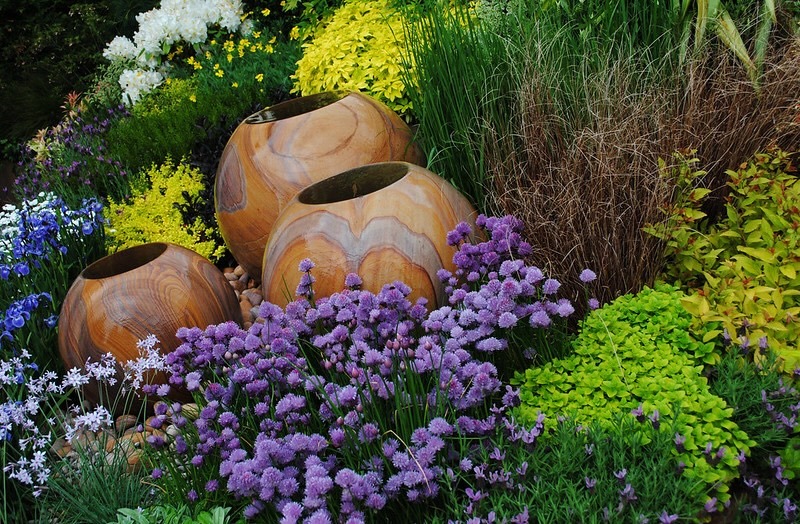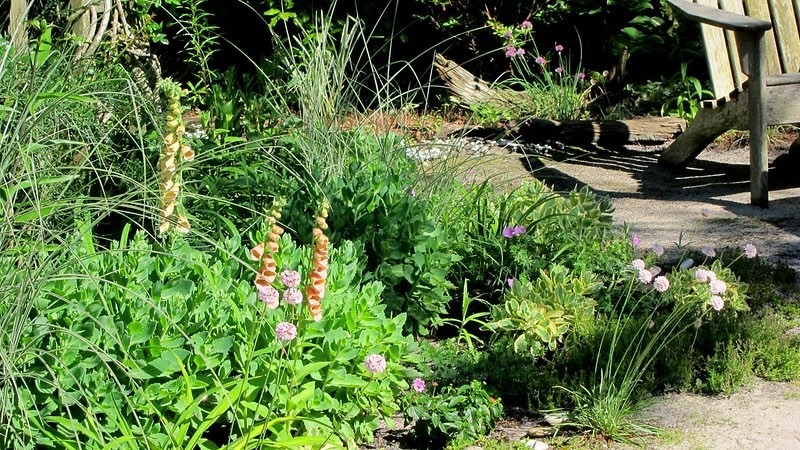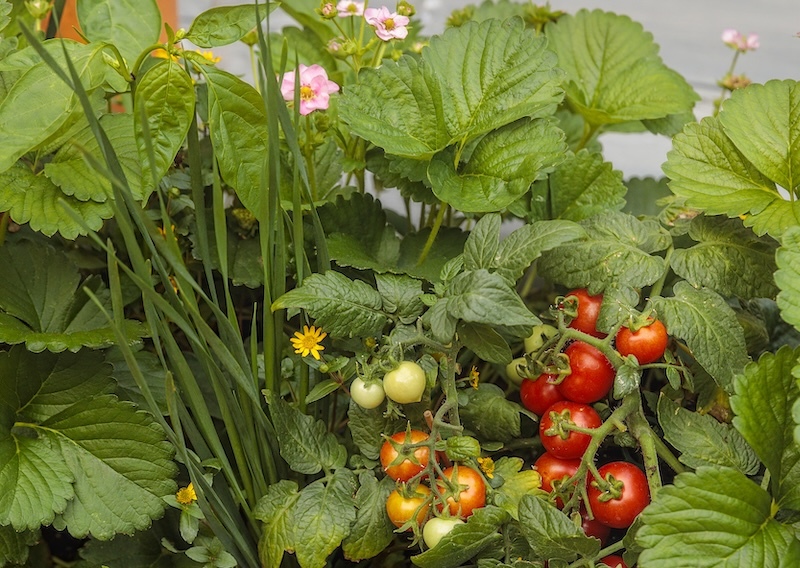Chives in the kitchen garden are indispensable. Chives are among the hardiest perennials and can be harvested almost year-round in most growing zones. The chives family includes onion chives and garlic chives, which both bloom in early spring. The drumstick flower heads are pale lavender or white and pair well with other ornamental plants to provide vertical interest toward the front of a planting.

Photo by Mark Wordy, unmodified, Flickr, copyright CC BY 2.0
This perennial herb is easy to grow as long as it receives at least 6 hours of direct sun a day. Chives are not fussy about soil pH and grow well in either acidic or alkaline conditions. The soil must be both well-draining and moisture-retentive to maintain vigorous growth, although periods of drought are rarely a problem for well-established plants. Dividing is a necessity every 2-3 years to control the plant’s spread and maintain blooming.
Adding chives to just about any type of garden plan is easy. Chives perform well as edging for a sunny garden bed or in a container for a patio or balcony. Their grassy foliage provides movement and texture against more traditional perennials. Add chives to a container arrangement for vertical interest and a strong, minimalist profile.
Shrubs To Plant With Chives
Alliums like chives and garlic are great natural pest repellents in the garden. The strong fragrance they give off when in bloom, or crushed underfoot, keeps both insects and larger mammals at bay. Plant them near a shrub border of early bloomers like hydrangeas, lilacs, or forsythias for pest deterrence and to complement the shrubs’ flowers. The chives’ deep green foliage will remain fresh and clean all summer and can be added to a seasonal salad.
Perennials To Plant With Chives
Many perennial herbs make good growing companions for chives, including oregano, thyme, rosemary, and bay laurel. They all appreciate well-drained soil that is not overly rich in nutrients, and need at least 6 hours of sun exposure a day. Add chives to the edge of a strawberry or raspberry bed to deter insect pests and feed early season pollinators while in bloom. Chives blend particularly well with agapanthus and smaller clumping-type ornamental grasses. For contrasting leaf textures, consider including iris, sedum, and Spanish lavender in any garden bed or planter to help the chives stand out.

Photo by K M, unmodified, Flickr, copyright CC BY 2.0
Annuals To Plant With Chives
Chives are a standard addition to a kitchen garden and can add definition and long-lasting interest to the edges of the bed. Most annual vegetables appreciate the same growing conditions as chives, i.e., well-draining soil that retains moisture. Chives can benefit carrots and other root vegetables by repelling and discouraging common garden pests such as root flies and their larvae. They also repel flea beetles and white cabbage moths, which often damage the leaves and stems of cruciferous vegetables like cabbage, kohlrabi, and brussels sprouts.
Best Companion Plants For Chives in Containers
Chives are a fun plant to add to mixed seasonal planters for both its edible and ornamental value. The low, compact clumps of chive foliage are best used as a filler in container arrangements. Regular snipping to use chives in cooking also helps to keep the foliage looking fresh well into the fall.
Chives will tolerate various watering schedules to match the needs of its pot mates. This easy-going perennial will also tolerate regular fertilizing and will likely bloom better with a formulation for blooming plants.
Plants Not To Grow With Chives
Although most plants grow well with chives, there are a few that do not. Poor companions include asparagus, beans, peas, and spinach, which all require very rich soil for good growth. Chives will compete with these plants for moisture and nutrients, and in the case of asparagus, chives may severely stunt its growth. In fact, any allium should be grown far away from asparagus to promote higher yields.

Best Plants To Grow With Chives
The best companions for chives are typically other edible plants such as annual vegetables and herbs, perennials, and biennials that share the same growing conditions. This versatile perennial can be grown as an herb, vegetable, or ornamental accent plant in either a garden bed or a decorative container. Grow it with other well-known garden companions such as creeping zinnia, nasturtium, and marigolds to attract beneficial pollinators and increase produce yields.
